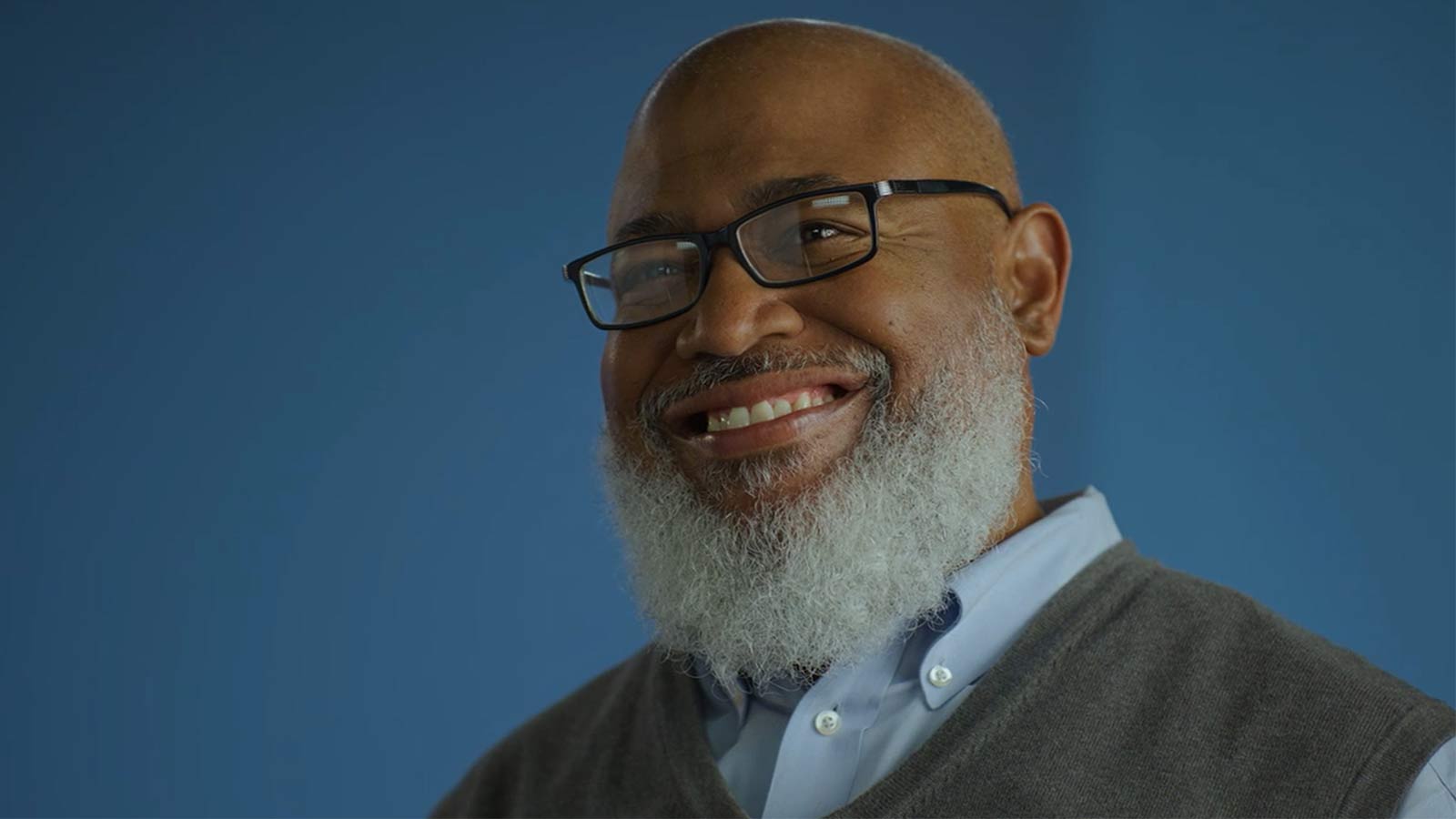Wide-Awake Hand Surgery Speeds Recovery, Puts Control in Patients' Hands
Hand surgeon Nathan Bodin, MD, introduces the benefits of wide-awake hand surgery, an innovative technique which minimizes postoperative pain and can speed your return to everyday activities.

By Nathan Bodin, MD, Hand Surgeon — Virtua Hand Surgery and Rehabilitation Center
From writing to cooking to tying our shoes, we use our hands and wrists for everything. So if they hurt, our ability to function takes a significant hit.
In many cases, rest, medication, braces, and physical therapy will help relieve your pain. For injuries that do require surgery, an innovative approach performed without general anesthesia can speed your return to everyday activities.
This approach is known as wide-awake local anesthesia, no tourniquet (WALANT). Also known as wide-awake hand and wrist surgery, this technique may be done in the surgeon’s office, and in the same amount of time as a normal appointment.
Patients are comfortable during the procedure without experiencing the side effects of full sedation. As you are wide awake, you can participate in the surgery, allowing the surgeon to check the integrity of the repair and make any necessary adjustments.
Learned from Dentistry
If you’ve ever had dental surgery, you’ve probably had a form of WALANT. Lidocaine numbs the area to be treated. Epinephrine extends the duration of the lidocaine and controls bleeding, so a tourniquet often isn’t necessary.
Conditions commonly treated with wide-awake surgery include:
- Trigger finger
- Tendon and ligament repairs
- Removal of masses and small tumors
- Contractures, abnormal thickening of the skin in the palm usually affecting the ring and little fingers
Advantages of wide-awake hand and wrist surgery
WALANT has many benefits compared to conventional procedures. People whose medical conditions would otherwise make them high risk for surgery are eligible for treatment. Preoperative blood work and fasting are not required, and patients may not need to stop their blood thinners.
Additional advantages include:
- Convenience. As there is no recovery from general anesthesia, you can drive yourself to the office and return to daily activities later in the day.
- Less postoperative pain. Often, only pain relievers like Tylenol or Motrin are needed.
- Lower costs.
- Quicker recovery and less need for physical therapy.
Unlike some conventional procedures where we would have to wait for you to recover from general anesthesia to check the efficacy of the repair, we can do it while we are still in the procedure room. For example, after connecting two pieces of tendon, you can show the surgical team that you can fully move it. Or, if the surgical team is treating a trigger finger, you can demonstrate for them that you can make a fist. We know right away that we are providing you the optimal treatment, reducing the need for additional surgeries.
We’re pleased to offer this approach to South Jersey.
Expert care for your hardworking hands
Virtua’s fellowship-trained hand surgeons provide the latest treatments to get you back to work and play without hand and wrist pain. Request a consultation today.
There's So Much More to Explore
Discover expert insights, inspiring stories, health tips, and more by exploring the content below!

Bioidentical Hormone Replacement Therapy Pellets: Relief for Menopause and Andropause Symptoms

Why Is Sex Painful During Pregnancy? Pelvic Congestion Syndrome Explained

Don't Drink Alcohol? You Could Still Get Fatty Liver Disease

What Is the Difference Between Palliative Care and Hospice Care?

How to Exercise Safely with Asthma: Tips, Triggers, and Rescue Inhaler Use

How to Relieve Bloating Fast: Simple Tips for Quick Comfort

How to Tell the Difference Between Cold, Flu, and COVID-19

Jill Travels From Delaware to South Jersey for Advanced Lung Care

4 Exercise Tips to Help You Reverse High Blood Pressure

From Exhaustion to Empowerment: Tracy's Hormone Replacement Therapy Success Story

Why on Earth Am I Always So Cold?

Timely Heart Care During a Heart Attack Helps Joe Feed the Community

Allegra Is Thriving With Crohn's Disease

The Best and Worst Foods for Acid Reflux

How to Manage IBS Symptoms and Feel in Control Again

5 Types of Lung Disease: Symptoms, Causes, and Prevention Tips

Foods to Enjoy and Avoid for GLP-1 Heartburn

3 Reasons Why Now's the Time to Find Relief From Varicose Veins

Baseball Coach Turns Male Breast Cancer Surprise into Personal Mission

The Brain Health Checklist: 11 Questions Everyone Should Ask

From Caregiver to Patient: Robotic Surgery Relieves Teresa's Knee Pain

How to Get and Stay Healthy This Fall

How to Reverse Prediabetes and Prevent Type 2 Diabetes

6 Ways to Get More Out of Your Daily Walk

Young Breast-Cancer Survivor Has New Hope for Healthy Future

Is Cancer Hereditary? What You Need to Know About Your Genetic Risks

Tara's Story: From Debilitating Uterine Fibroid Pain to a Half-Marathon Medal

Is Your Post-Pregnancy Belly Bulge a Sign of Diastasis Recti?

Prevent Yard Work Injuries: Tips for Mowing, Gardening, and Raking

Is Your Daily Walk Making You Really Sore?

IBS and Alcohol: Can You Still Enjoy a Drink?

Focus on Mental Health Is Key Part of Andrew's Weight-Loss Journey

What You Need to Know About Epilepsy

'Feeling Joy Again': ECT Brain Stimulation Therapy Restores Ashley's Well-Being

Not Just for Wrinkles: Botox Injections Promote Improved Bladder Control

5 Best Biking Trails In South Jersey

How to Stay Cool and Prevent Heat Illness All Summer Long

What Happens to Your Body When You Don't Get Enough Sleep?

5 Key Facts About Proton Therapy for Cancer Treatment

Mood Swings vs. Mood Disorders: Know the Signs and Get Help
Are emotional ups and downs disrupting daily life? Learn common signs of mood disorders, and when to talk to a doctor about diagnosis and treatment options.

4 Foolproof Pelvic Floor Strengthening Exercises for Women

What to Expect During Perimenopause

Protect Yourself From Tick Bites and Lyme Disease

6 Tips to Tame Your Spring Allergies

Do You Know the Signs and Symptoms of Uterine Fibroids?

How Are Uterine Fibroids Treated?

How Can I Prevent Bone Loss and Osteoporosis?

Is an At-Home Colon Cancer Test a Good Alternative to a Colonoscopy?

How Do You Manage the Side Effects of Weight-Loss Medications?

A Woman’s Four-Step Guide to Fight Back on Back Pain

What You Need To Know About Carpal Tunnel Syndrome

The Truth About Menopause, Weight Gain, and Belly Fat

Shedding Light on Lesser-Known Menopause Symptoms and Solutions

Debunking The Myths About Vaginal Dryness
Inside Look at Blood Vessels Aids PAD Treatment
Denise Davis: Pay Attention to Your Heart Health

What You Need To Know About Stroke Treatment

Prayers Answered: Pastor Gatling on New Mission After Kidney Transplant

10 Smart Ways to Manage Your Diabetes

Signs You May Have Chronic Kidney Disease

5 Essential Winter Foot Care Tips When You Have Diabetes

Rare Kidney Autotransplant Gives Patricia More Time With Family

Sweet Music: Trust, Teamwork Save Justin from Heart Attack

Advanced Minimally Invasive GYN Surgery Puts You at the Center of Care

Complex Heart Surgery Nets James a Lifelong Friend

Hepatitis C Kidney Transplant a Blessing For Lee Manns
Special Delivery Organ Transplant Gives Amazon Employee Second Chance

7 Reasons Why You Want Your Surgeon to Be an Expert in Robotics

Colitis Symptoms Under Control, Jennifer Is ‘Living My Best Life’

How Do I Care for a Wound that Won't Heal?

Five Back Pain Risk Factors That You Should Know

Is My Back Pain Normal, or Is It Spinal Stenosis?

Robotic Hernia Surgery Combines Innovative Techniques With Faster Recovery Times

5 Back Stretches for the Work-From-Home Workweek

How Does Breast Density Affect Your Mammogram?

Menopause: New Insights Into the Power of Hormone Replacement Therapy

Signs You Should Get Treated For Vein Problems

One New Heart Valve Saves Two Lives in the Tritten Family

What You Need to Know About Heart Failure
Lung Valve Surgery Relieves COPD, Emphysema Symptoms

4 Easy Ways to Treat and Prevent Runner's Knee

Lung Screening, Robotic Technologies Get Pat Kicking Up Her Boots Again

Breast Cancer Diagnosis Inspires Catherine to Help Others

Jasmine’s On-Air and Pain-Free After Gallbladder Surgery

When Should I See a Doctor About My Knee Pain?

Quick Action Leads to Jesse's Recovery From Stroke

A Non-Athlete’s Guide to Shoulder Overuse Injuries
Shoulder problems aren’t limited to athletes. Virtua orthopedic surgeon Sean McMillan, DO, explains shoulder overuse injuries and prevention in this article.

Put Lower Back Pain Behind You With This Ten-Step Guide

Wide-Awake Hand Surgery Speeds Recovery, Puts Control in Patients' Hands

South Jersey Veteran Thrives After Cross-Country Kidney Donation
Working from Home? Take a Quick Break to Stretch Your Wrists

3 Ways to Avoid Knee Pain

When Should I See a Doctor for My Hip Pain?

When Should I See a Doctor About My Shoulder Pain?

Is My Back Pain Normal, or Is It Sciatica?

Is My Back Pain Normal, or Is It a Herniated Disk?

When Is It Back Pain, and When Is It Something More?

Watchman Heart Device: a Technological Breakthrough for Blood Clot Prevention

Albert's Emergency Cardiac Surgery Is a 'Story of a Lifetime'

What Can I Do Right Now About My Aching Back?

How Do I Get Rid of This Back Pain for Good?

Can Your Gut Health Affect Your Heart?

When Should I Be Worried About My Neck Pain?
Advanced Heart Failure Therapies Get Bernadine Back to Full Speed

Sarah Wins Back Her Health After Crohn's Disease Diagnosis

Overcoming Addiction, Philip Now Sees More Positive Side to Life
Firefighter's Successful Lung Cancer Care at Virtua
A Lung Screening Put Teresa Back in the Race

A Breast Self-Exam Saved Kristen's Life

Early Treatment is Best to Relieve Hemorrhoid Symptoms

The Top 10 Foods For A Healthy Diabetes Diet

Keeping the Beat: Advanced Heart Surgery for Aortic Aneurysm

Are You At Risk For Chronic Kidney Disease

Local Pastor Makes Kidney Health Mission of Ministry

What’s the Difference Between Type 1 and Type 2 Diabetes?

Is This the Right Time in Your Life for Bariatric Surgery?

All for Bear: Dan Loses Weight to Be His Son’s Kidney Donor

Augmented-Reality Surgery Has Bobby Back on Stage, Rocking His New Hip

Hyperbaric Wound Therapy Puts Joette Back in Motion

Robotic Hernia Repair Renews David's Active Lifestyle

